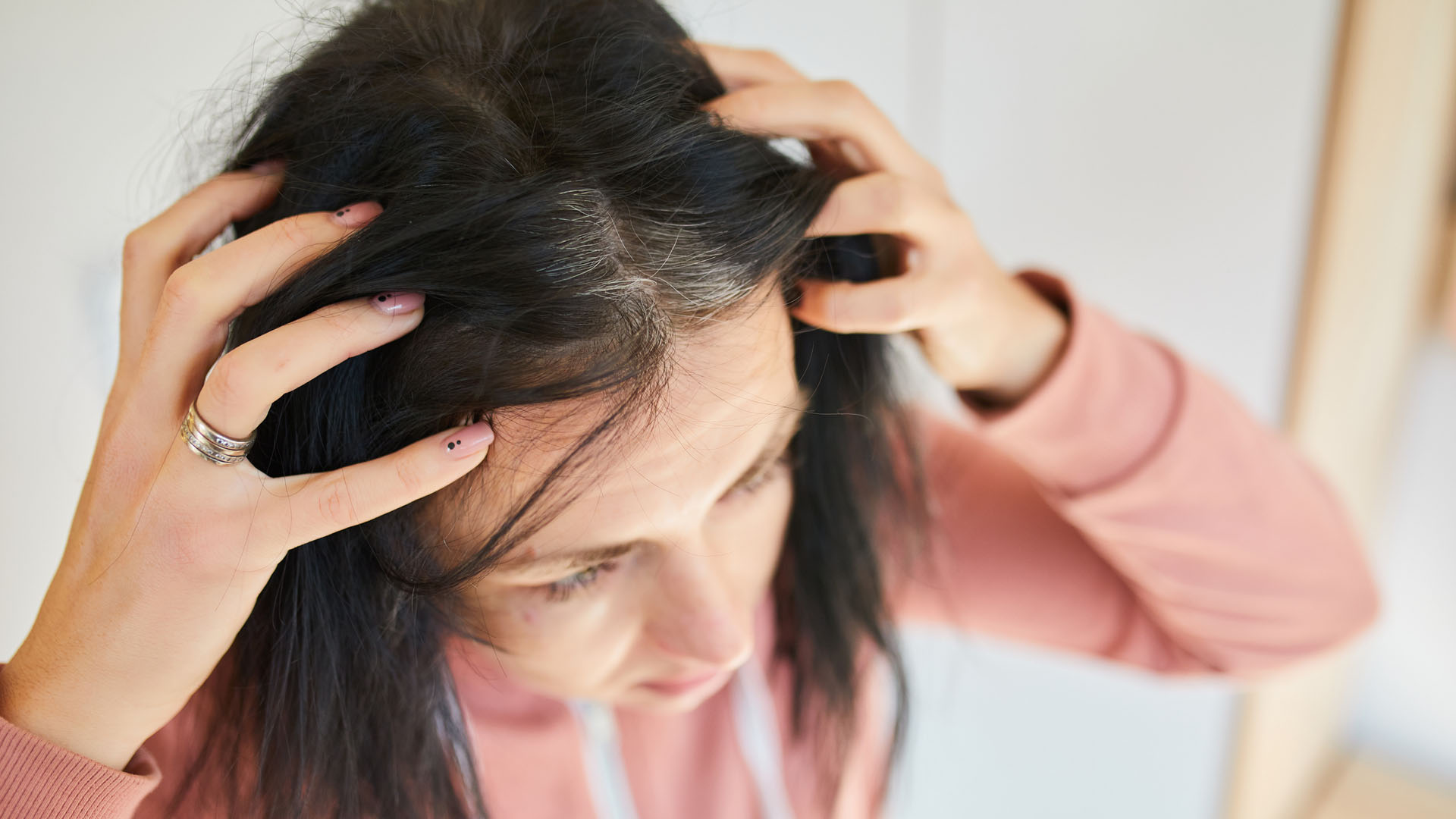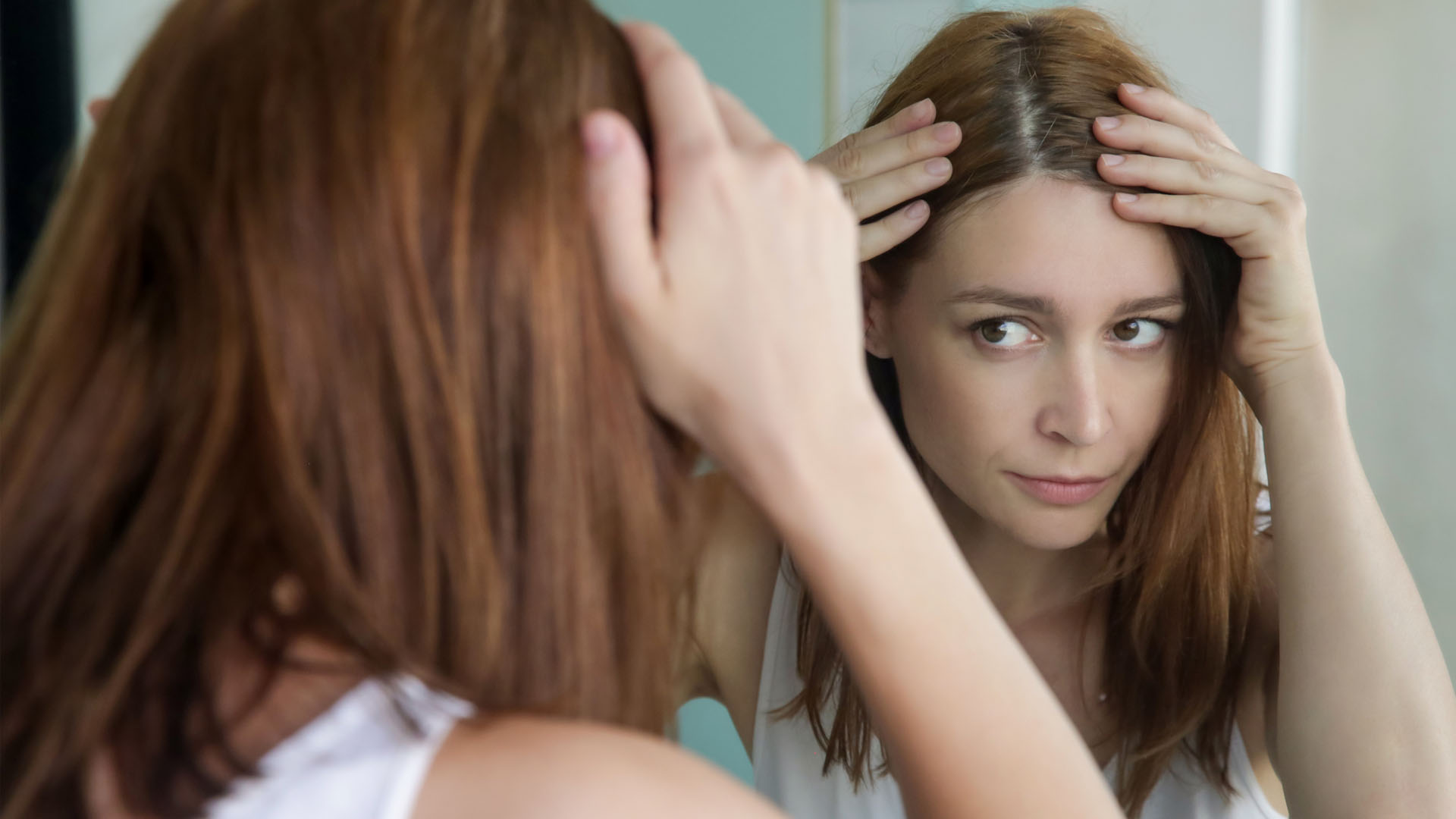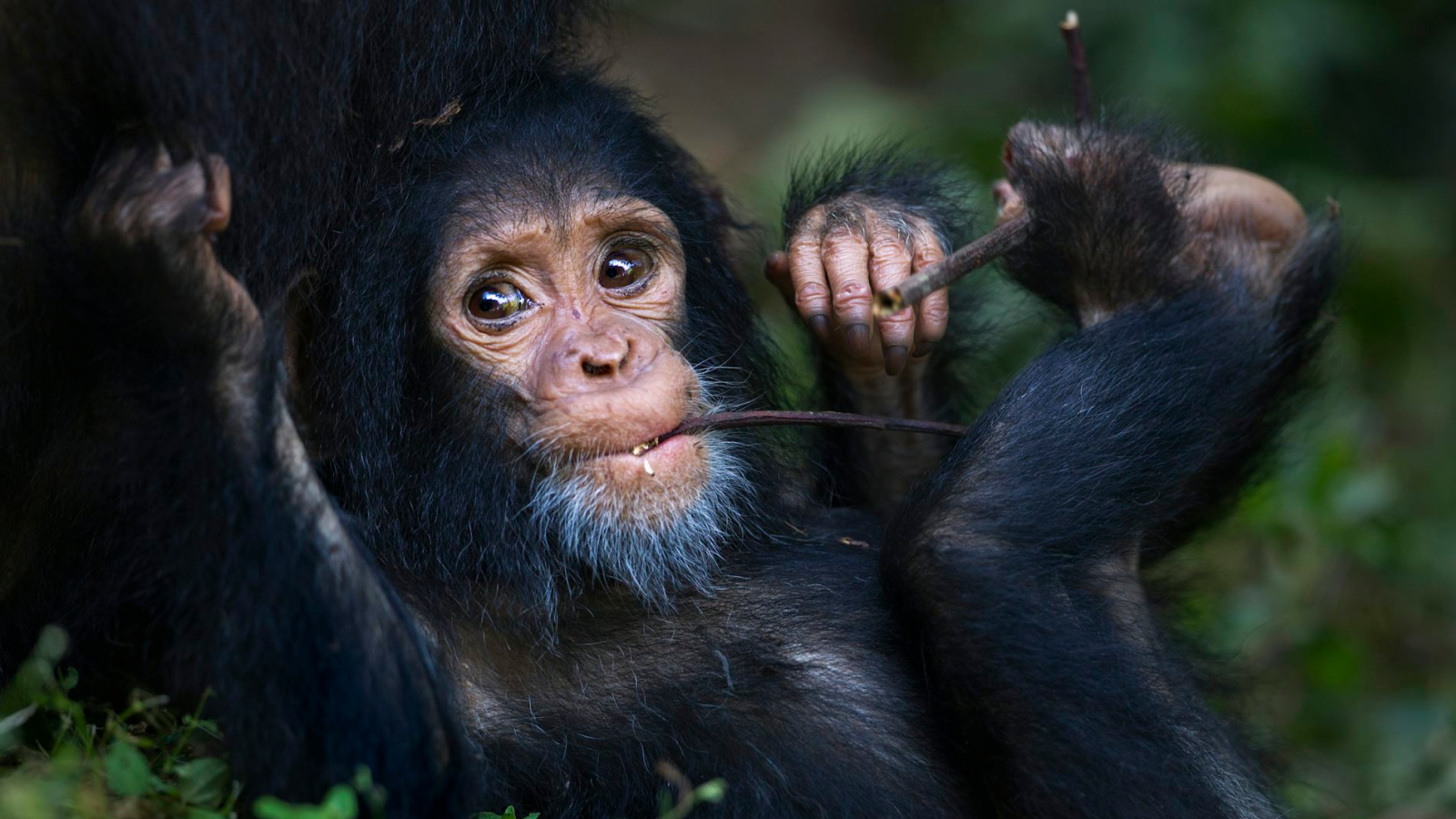Can stress turn hair gray?
Science suggests the answer is "yes".

There's a long-held belief that graying hair is more than just an issue of time and age — it's a marker of lived experience. The adage, "you're making my hair gray" suggests silvering strands are a record of worries, while Marie Antoinette's hair went white in a single night after learning of her execution, according to legend.
But can a person's life experience really change their hair color? Science suggests it's possible that while hair color naturally wanes over time, certain factors may speed up that change — including stress.
Stress is a normal reaction to everyday pressures, but it can become unhealthy when it upsets a person's day-to-day function, according to the American Psychological Association.
Stress isn't the primary cause of graying — genes largely dictate when people go gray —- but "stress may accelerate" the graying process, said David Kingsley, a researcher into hair loss and president of the World Trichology Society. (Trichology is the study of conditions of the hair and scalp.)
Even indirect stress, such as malnutrition, thyroid issues, hormonal imbalance and anemia, may impact hair pigmentation, he said.

In mice, stress can deplete hair-pigmenting cells known as melanocytes, according to a 2020 study in the journal Nature. Melanocytes are produced by stem cells that live in hair follicles.
In the study, researchers provoked a stress response in the mice. In response, corticosterone (rodents' equivalent of the stress hormone cortisol) and norepinephrine (a neurotransmitter and hormone) flooded into the follicle. Once in the follicle, the norepinephrine caused the stem cell to transform into a regular melanocyte, meaning it could not divide indefinitely. With the stem cell permanently changed, the follicle no longer had a source of new pigment cells. That strand of hair — or in the mouse's case, fur — lost its source of color.
Get the world’s most fascinating discoveries delivered straight to your inbox.
While those findings can't necessarily be applied to humans, a 2021 study in the journal eLife found that stress can also cause hair to turn gray in humans — except the change isn't always permanent.
Participants with some gray hairs or "two-colored hairs" — gray and pigmented in the same strand — were asked to log their experiences and stress levels over recent months. They found that stressful experiences such as a job loss were linked to graying. However, removing the stressor could reverse the graying.
"There was one individual who went on vacation, and five hairs on that person's head reverted back to dark during the vacation, synchronized in time," lead author Martin Picard, a neurologist at Columbia University said in a statement.
Clearly more than genetics determines when a hair turns gray, Picard said. Not only is there a wide variation in when people gray, from their 30s all the way to their 80s, but "every hair has the same genome, is exposed to the same stuff," Picard told Live Science. "So, why do some gray earlier and some later?"
Based on mathematical modeling, Picard and his colleagues suggested that hair needs to reach a threshold to turn gray. In middle age, when a person is nearer that threshold, stress can push a hair over the line.
Kingsley agreed. Melanocyte stem cells become more vulnerable as they age, he said. So added stress potentially "changes the timing" of graying, he said.
Picard and his co-authors suggested that it may be possible to reverse graying hair in someone who has recently gone gray. For someone who has had gray hair for years, however, removing stress is unlikely to cause their locks to rebound to their original color, as the hair has gone well past the graying threshold.
In practice, Kingsley said he doesn't often see hair recover its pigment. Reverse graying is also more common in patients being treated for a hair loss condition, rather than people who are graying normally, he said.
Ideally, a follow-up prospective study would be next, Picard said. Researchers would follow participants for months, recording their experiences and measuring their stress hormones via saliva before analyzing their hair strands. However, this is not yet in the works.
Still, the key message stands. "What we do has a material impact on things we used to think were irreversible like hair graying," Picard said.

Donavyn Coffey is a Kentucky-based health and environment journalist reporting on healthcare, food systems and anything you can CRISPR. Her work has appeared in Scientific American, Wired UK, Popular Science and Youth Today, among others. Donavyn was a Fulbright Fellow to Denmark where she studied molecular nutrition and food policy. She holds a bachelor's degree in biotechnology from the University of Kentucky and master's degrees in food technology from Aarhus University and journalism from New York University.


